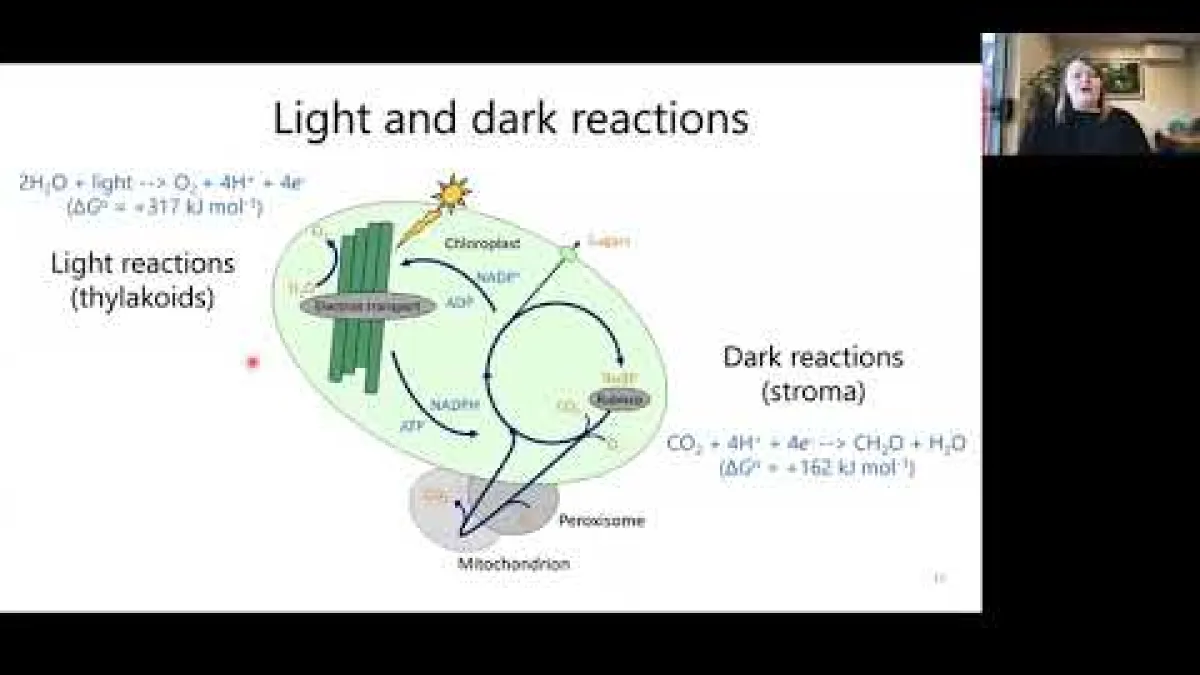Creating high-energy plants for future agriculture and biotechnology
Recorded seminar
Speakers
Content navigation
Description
Growth and development of plants is driven by solar energy captured through photosynthesis. ATP, produced by the light reactions of photosynthesis, acts as universal cellular energy cofactor fuelling all life processes. Understanding how to upregulate ATP production is of the utmost importance because it’s holding a potential to engineer biological systems that will be able to fix CO2 at very high rates. Increasing the ATP yield of plants would have multiple benefits: for example, better stress resistance, production of high-value compounds or introducing Carbon Concentrating Mechanism into C3 plants. The latter would allow Rubisco to operate at maximum efficiency and is projected to increase crop yield by up to 50%. My research program uses multidisciplinary approach, combining photosynthesis, synthetic biology, cell biology, plant physiology and agricultural sciences, to identify regulatory mechanisms and develop methods for increasing photosynthetic ATP production. This program is ideally suited to build on and continue developing the Translational photosynthesis research at RSB to create better crops for future Australian climates.
Location
Please click the link below to join the webinar:
https://anu.zoom.us/j/86284158903?pwd=MncvcWRDWG16cUxQTFNzUGZNb05Mdz09
Passcode: 400233

